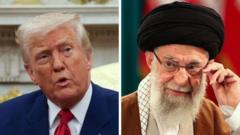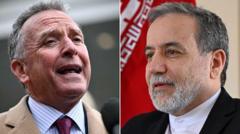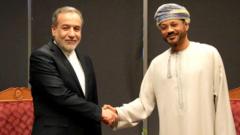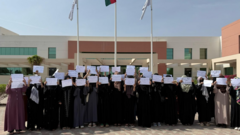As Oman becomes the first in the Persian Gulf to implement an income tax, it may lead the region towards reduced oil dependence and increased economic diversification.
Oman's Inauguration of Income Tax Marks a Pivotal Economic Shift in the Gulf

Oman's Inauguration of Income Tax Marks a Pivotal Economic Shift in the Gulf
The introduction of a 5% income tax by Oman signals potential transformation for Gulf economies traditionally reliant on oil.
In a groundbreaking move, Oman has announced that it will levy a 5% income tax starting in 2028, specifically targeting individuals earning over 42,000 Omani riyals (approximately $109,000). This decision has sparked interest among neighboring governments, as it marks the first introduction of an income tax in an area predominantly dependent on petroleum wealth.
Omani officials assert that the new tax aims to promote social equality while alleviating the nation's reliance on a sector that accounted for around 70% of state revenues in the previous fiscal year. This initiative positions Oman as a possible model for other Gulf nations, which have traditionally managed their economies without such fiscal measures.
Since the discovery of oil in the 1930s, Gulf monarchies have maintained a system where they distribute a portion of oil profits to citizens—through state employment and subsidies—while concentrating significant wealth within royal families through often obscure financial practices. This historical model has allowed these governments to flourish under an authoritarian structure, minimizing political engagement by leveraging oil wealth.
However, the last decade has revealed cracks in this longstanding paradigm. With oil price fluctuations and increased governmental expenditure, Gulf states are exploring avenues for economic diversification away from fossil fuels. In Saudi Arabia, for instance, Crown Prince Mohammed bin Salman has already initiated subsidy cuts as part of his reform agenda.
As Oman embarks on this new tax policy, it could encourage a necessary reevaluation of economic strategies across the Gulf, urging other states to consider similar reforms in the face of changing global energy dynamics.






















